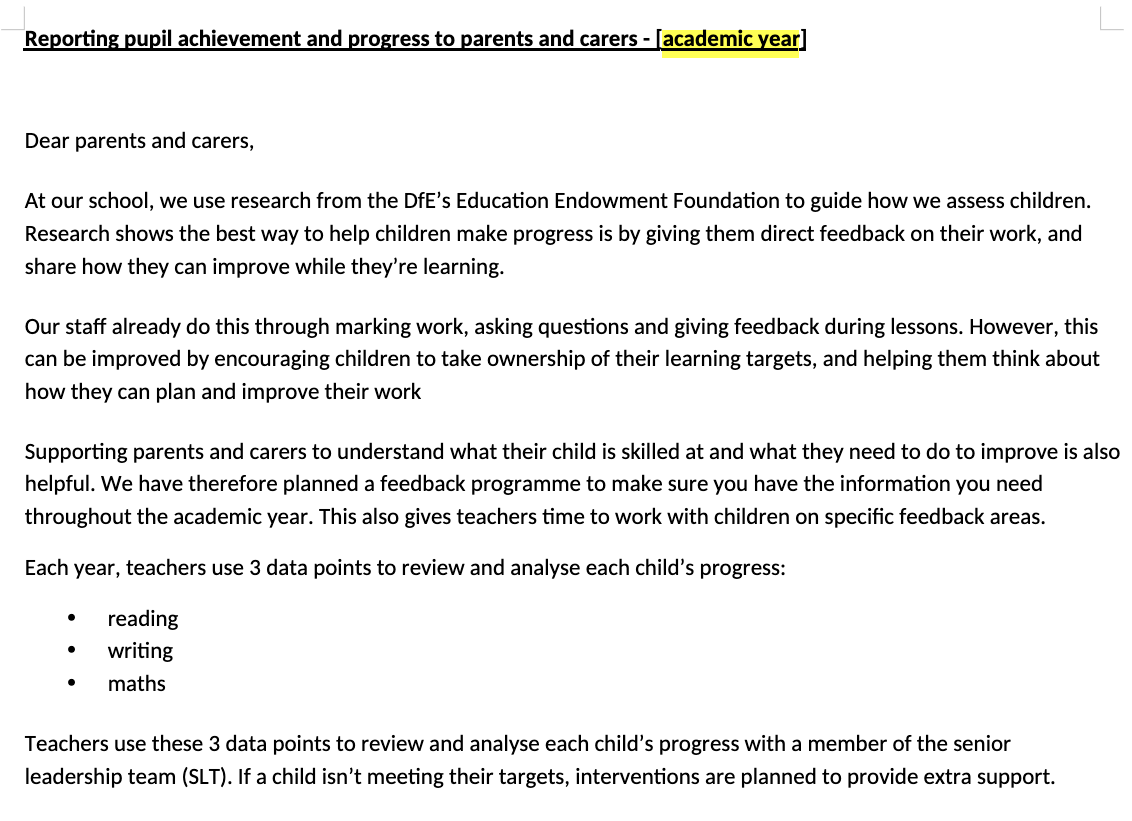Share expectations for communication and reporting with parents and carers
Example
School details
School name: St Barnabas CE First and Middle School
Location: Worcestershire
Phase: Primary and Secondary
Number of pupils: 194
Contact details: Email Executive Headteacher Elizabeth Whetham at ewhetham@st-barnabas.dowmat.education
Download the example

Background from Elizabeth Whetham, Executive Headteacher
At St Barnabas, we follow DfE Education Endowment Foundation research, which shows that good feedback helps children make up to 8 months of extra progress in their learning. Our staff already give feedback through marking, questions and quick guidance during lessons. However, we’ve also planned a programme to keep parents and carers informed about their child’s progress, while giving teachers time to focus on supporting children with clear feedback.
How we manage expectations for communication and reporting
We send this letter to parents and carers at the start of each academic year. It outlines how and when feedback about their child’s progress will be shared during each term.
Other schools can choose to use or adapt the example in their own school setting.
Key benefits
1. Improved communication between teachers and parents or carers
We’ve seen a significant reduction in ad hoc queries from parents and carers about pupil progress.
Parents and carers know when they’ll receive updates about their child’s progress, and what each update will cover. This has built trust with teachers and made scheduled communications (such as parents’ evenings) more focused and meaningful.
2. Reduced teacher workload
We’ve shifted away from the traditional model of writing one or more comprehensive reports per year.
Instead we:
- share an expectation booklet with parents in the Autumn term - this contains their child’s National Curriculum expectations for reading, writing and maths for the academic year
- provide concise updates throughout the year - these only focus on progress and key areas of improvement
3. Maximised teacher impact
At St Barnabas, teachers hold one-on-one ‛pupil conferences’ during lessons in the Autumn and Spring terms. These sessions are an opportunity to:
- provide immediate feedback directly to the child
- discuss progress
- set realistic targets
After each pupil conference, teachers send a pupil conference slip home. This short slip highlights key areas for development in reading, writing and maths.
These slips are also referred to during parents’ evenings:
- helping to focus discussions, as parents know their child’s development targets in advance
- reducing preparation time for teachers
Share this resource
Share your ideas
You can help other school leaders by sharing what has worked in your school.
Help improve our service
Your feedback will help us improve our service on workload and wellbeing for all school staff.

